Dialectical Behavior Therapy in Sun City West, Arizona
Building emotional balance and resilience in recovery
Dialectical Behavior Therapy (DBT) is a highly effective, evidence-based approach that helps people regulate emotions, improve relationships, and cope with stress in healthy ways. Originally developed to treat borderline personality disorder, DBT has proven to be extremely beneficial for individuals in addiction recovery — especially those with co-occurring mental health conditions like anxiety, depression, or trauma-related disorders.
At Virtue Recovery Sun City West, our DBT program combines individual therapy, group skills training, and practical exercises to help clients manage intense emotions without turning to drugs or alcohol. DBT skills are especially valuable during early recovery, when stress and emotional triggers can make relapse more likely.

Why DBT is Critical for Addiction Treatment
Addiction often develops as a way to escape or numb emotional pain. Without learning healthier ways to handle those emotions, the risk of relapse remains high. DBT provides concrete tools for managing emotions, staying present, and making choices that align with long-term recovery goals.
DBT in addiction recovery can help you:
Regulate intense emotions without relying on substances
Reduce impulsive behaviors that can lead to relapse
Improve relationships through better communication and boundaries
Increase mindfulness and awareness of triggers
Develop long-term coping strategies for stress and conflict
At Virtue Recovery Sun City West, DBT is integrated into your individualized treatment plan, ensuring you gain the skills needed to maintain emotional balance and sobriety.

Benefits of DBT for Addiction Treatment
Evidence-Based: Backed by decades of research for emotional regulation and recovery
Skills-Focused: Teaches practical tools you can apply immediately
Integrated Approach: Works alongside CBT, trauma therapy, and relapse prevention
Supportive Environment: Learn and practice skills in a safe, guided setting
Adaptable: Helpful for a wide range of co-occurring mental health conditions
Build Emotional Strength with DBT in Sun City West
Recovery isn’t just about stopping substance use — it’s about learning to live with balance and resilience. DBT can help you get there.
Call 623-777-2400 or complete our secure online form to get started today.
Step-by-Step DBT Process

1. Initial Assessment
We evaluate your emotional regulation needs, mental health history, and substance use patterns.

2. Goal Setting
You’ll learn what DBT is and set personalized goals for therapy.

3. Skills Training Groups
Practice DBT skills in four core areas: mindfulness, distress tolerance, emotion regulation, and interpersonal effectiveness.

4. Individual Therapy Sessions
Work one-on-one with a therapist to address emotional triggers and personal challenges.

5. Real-Life Application
Apply DBT skills to everyday situations, with guidance and feedback from your therapist.

6. Long-Term Maintenance
We provide relapse prevention planning and ongoing support to keep your skills sharp after treatment.
Why Choose Virtue Recovery Sun City West for DBT?
Our therapists are trained in addiction-focused DBT, meaning each skill you learn is adapted to the unique challenges of recovery. We offer a supportive, judgment-free environment where you can safely practice and refine your coping strategies.
DBT is included at all stages of care — from detox through aftercare — so you’re always building emotional resilience alongside your recovery.

What Our Clients Are Saying
Learn the Skills to Thrive in Recovery
With DBT, you can navigate stress, relationships, and emotions without turning to substances. Our Sun City West team is here to guide you.
Call 623-777-2400 or send us a confidential message online today.
Virtually Tour Your Arizona Addiction Recovery Haven
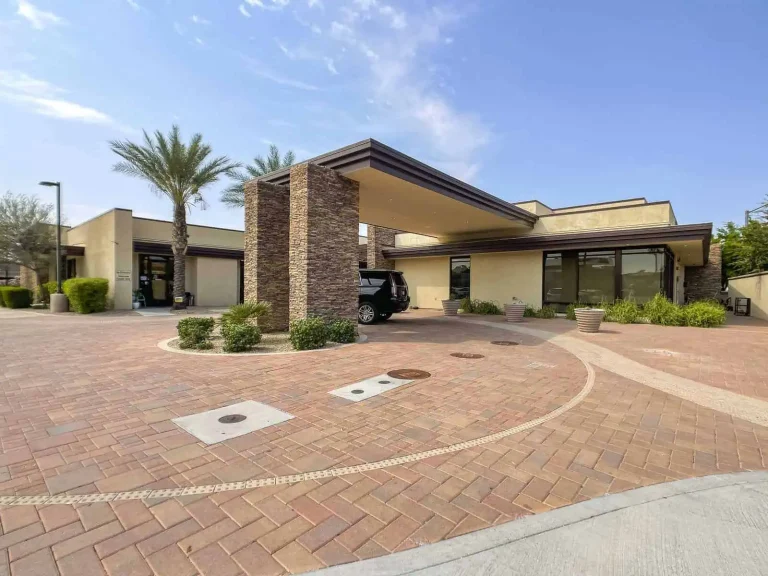
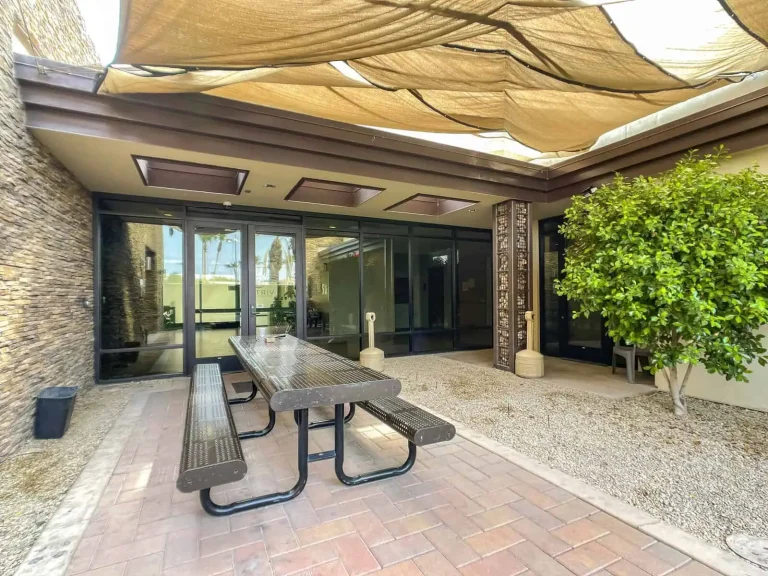
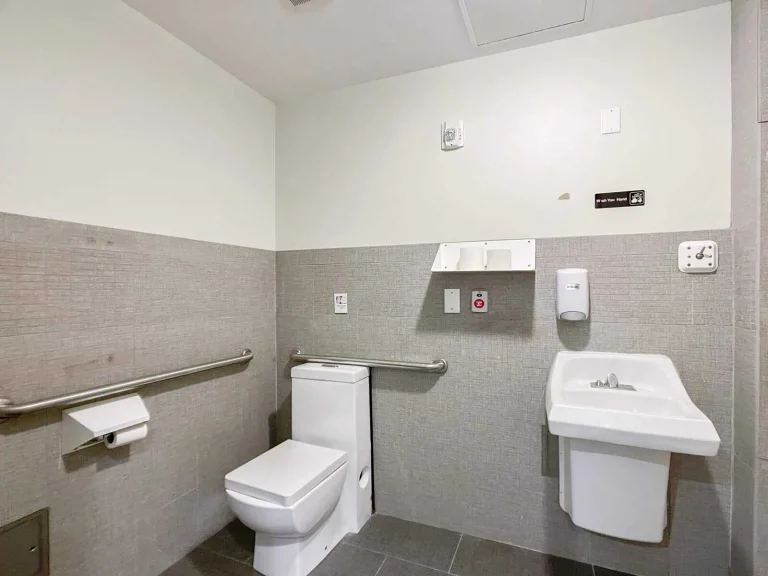
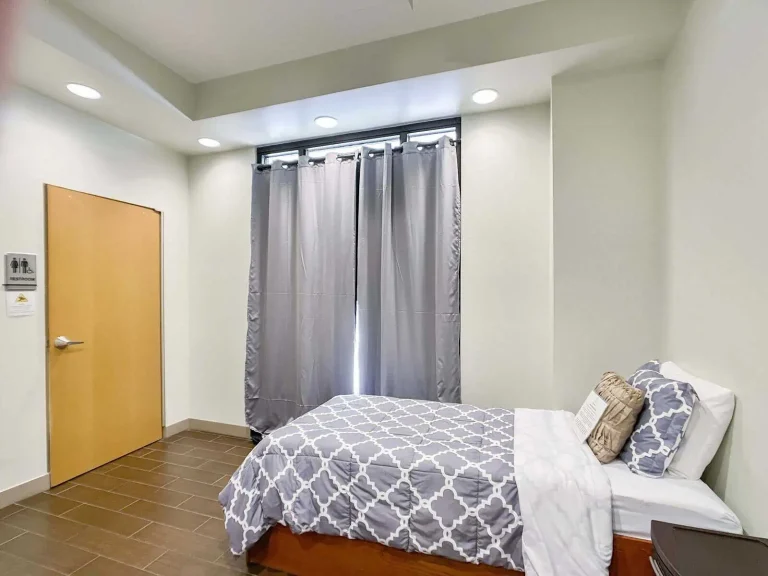
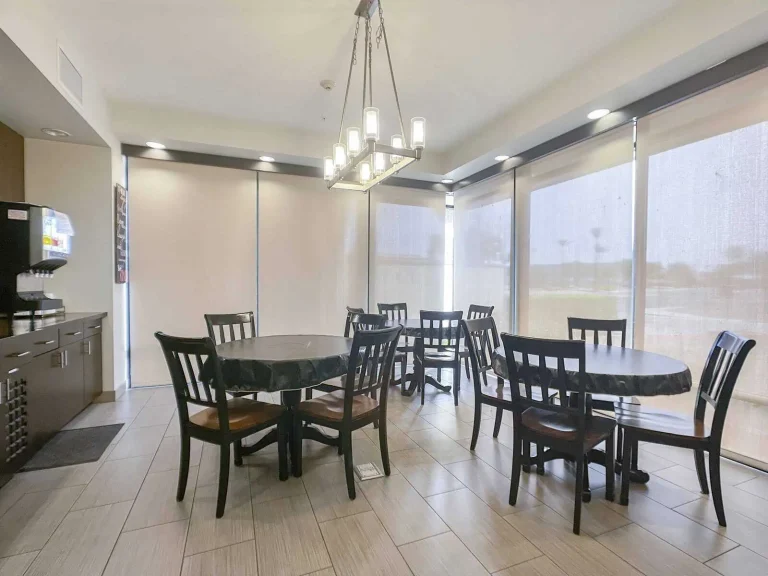
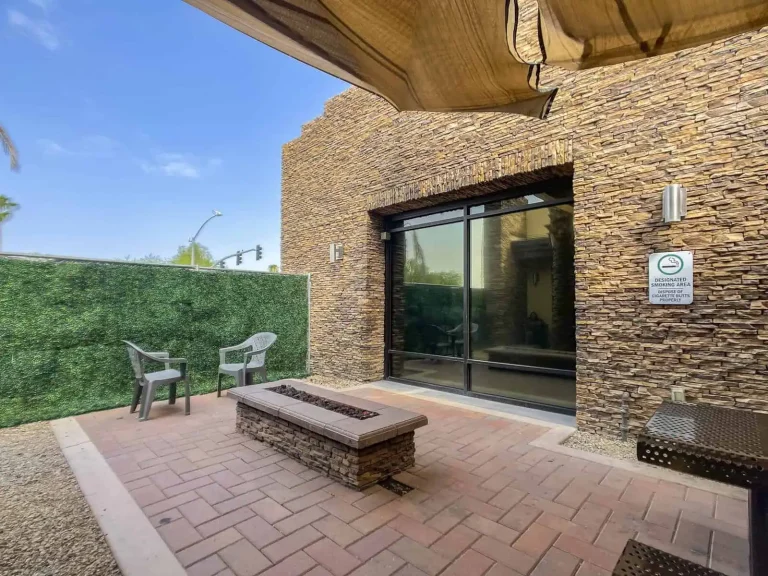
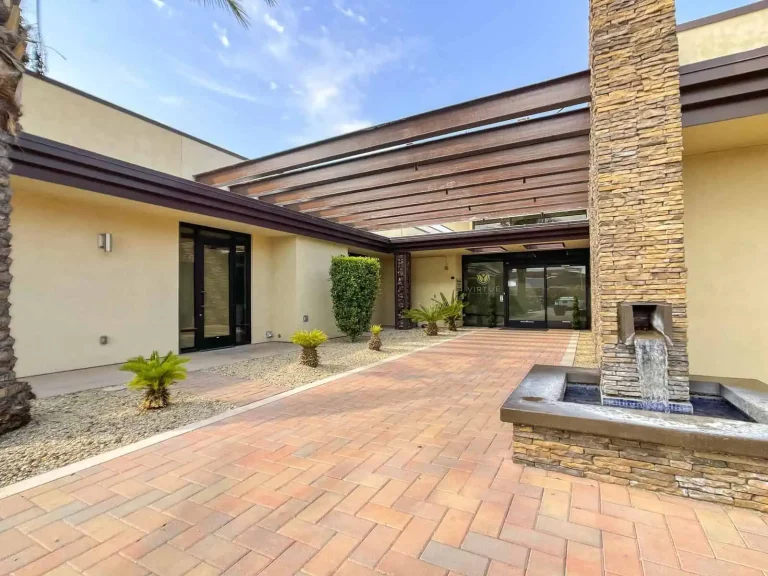
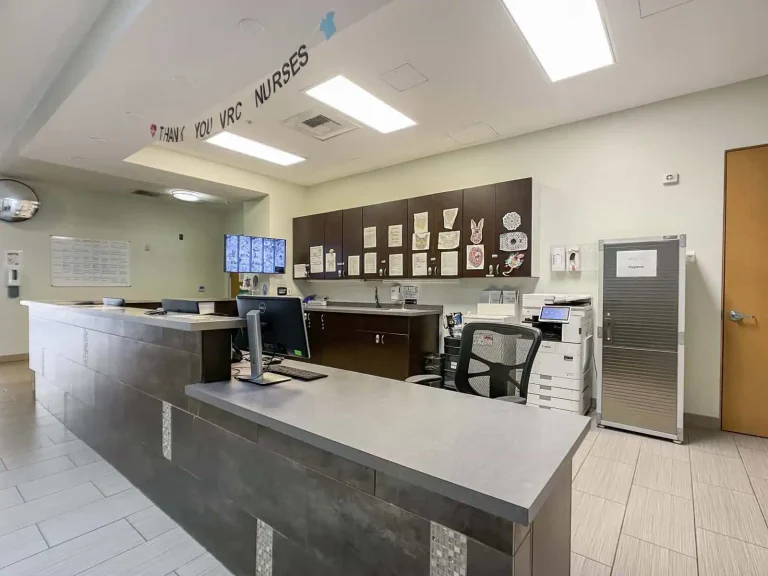
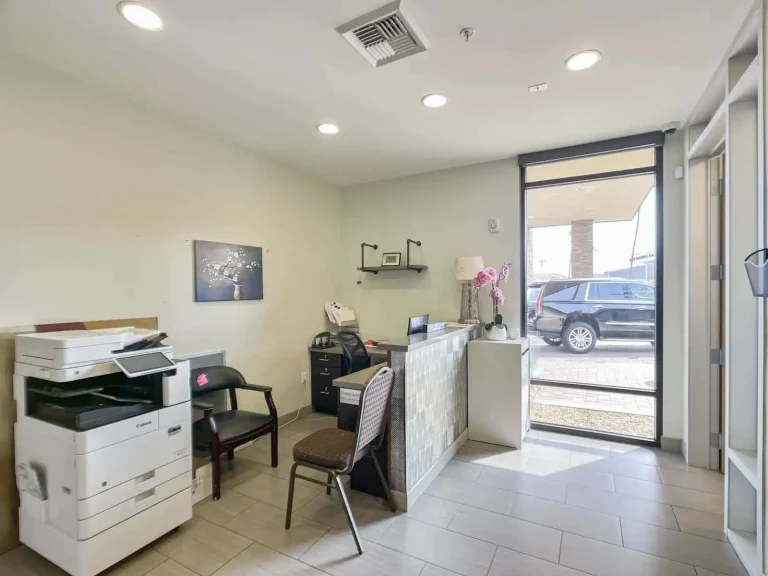
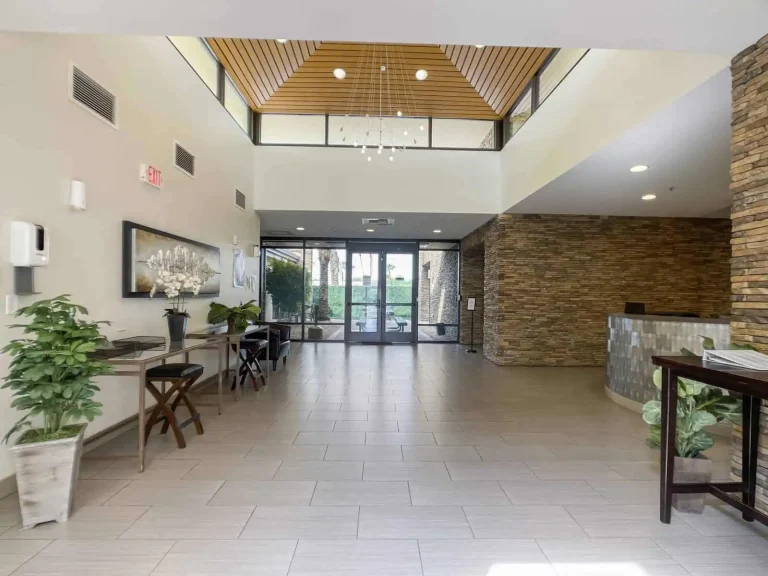


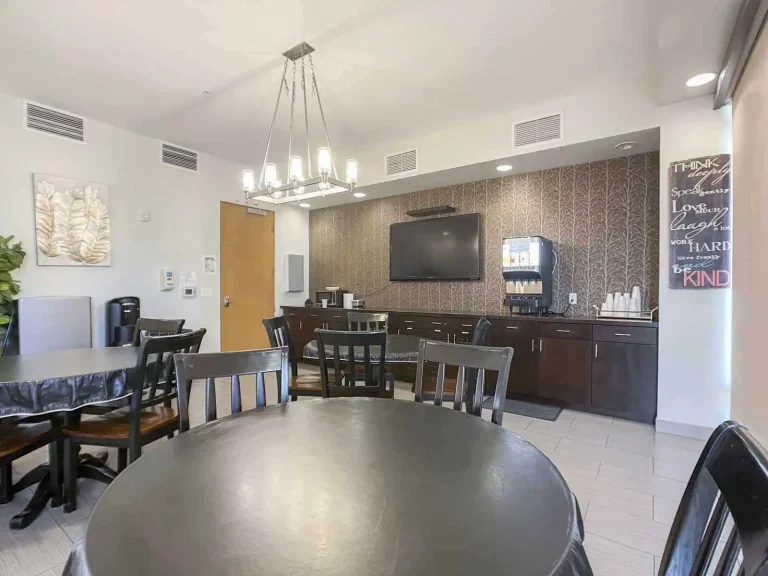
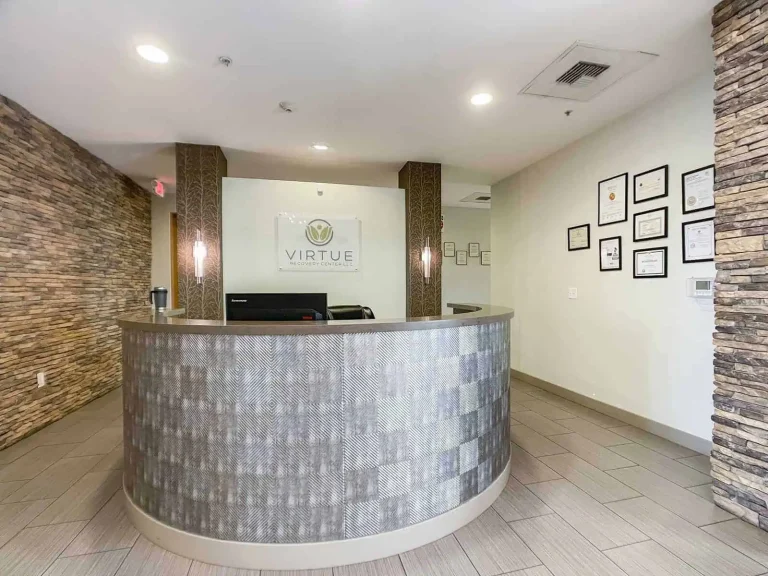

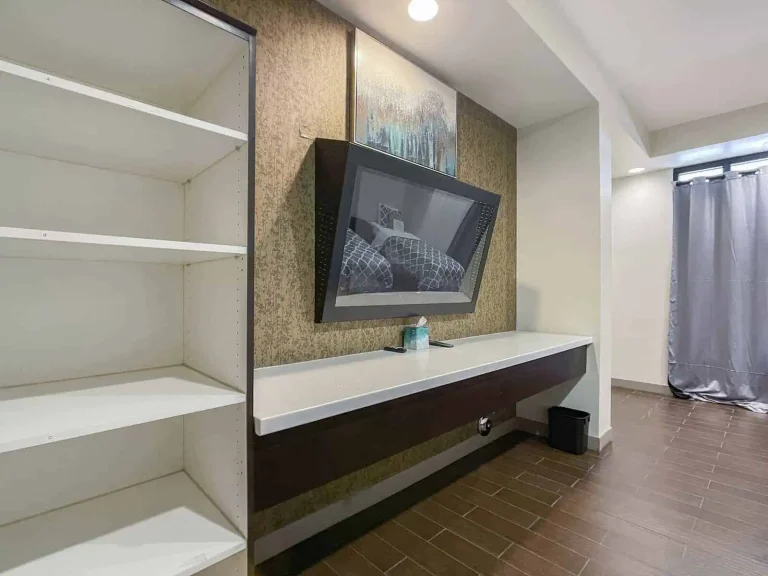
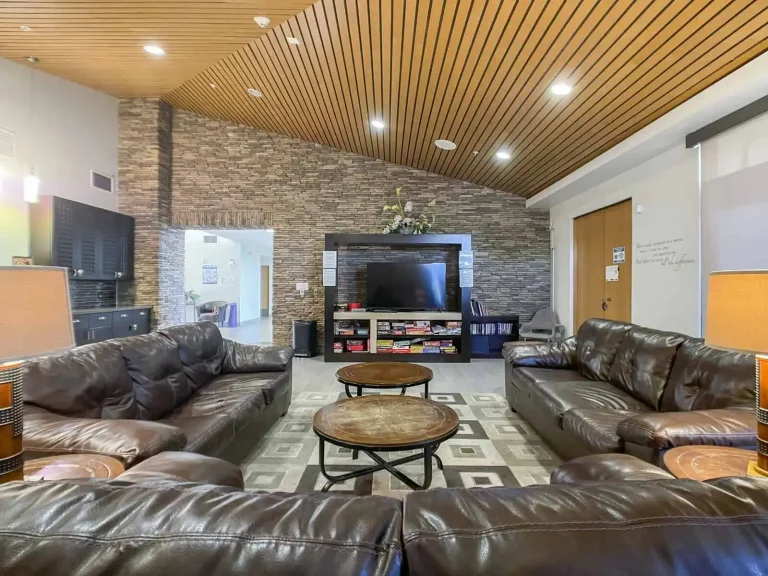
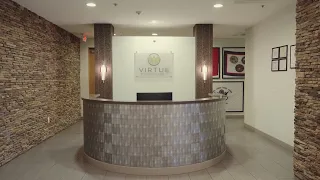
Our therapy rooms, group training spaces, and peaceful outdoor areas are designed to create a calm environment for practicing DBT skills.
Virtue Detox Sun City West
FAQs About Dialectical Behavior Therapy at Virtue Recovery
DBT is a type of cognitive-behavioral therapy that teaches skills for emotional regulation, distress tolerance, mindfulness, and interpersonal effectiveness.
It helps clients manage intense emotions, reduce impulsivity, and handle stress without turning to substances.
Yes. We introduce DBT-based coping skills even during detox to help with emotional stability.
Yes. We focus on addiction treatment, with mental health therapies like DBT integrated into the program.
AHCCCS coverage is limited to detox for certain drugs that meet medical necessity criteria; DBT is included during that process.
Most clients benefit from both formats, but your treatment plan will be tailored to your needs.
Yes. DBT is effective for conditions like borderline personality disorder, depression, anxiety, and PTSD.
Glossary of Terms for Dialectical Behavior Therapy
A therapy that teaches emotional regulation, mindfulness, and relationship skills.
Staying present and aware without judgment.
Coping with stress in healthy ways.
Managing intense emotions to prevent impulsive actions.
Building healthy communication and boundaries.
A situation or feeling that prompts substance use or emotional distress.
Treating addiction and mental health disorders together.
Strategies to maintain sobriety.
Applying therapy skills to everyday life.
Teaching about mental health and recovery concepts.
Virtue Recovery's Addiction Therapies

Group Therapy
Participate in guided sessions with peers to share experiences, build support, and strengthen recovery through collective insight.

Cognitive-Behavioral Therapy
Identify and reframe negative thought patterns to develop healthier behaviors and coping strategies for lasting recovery.
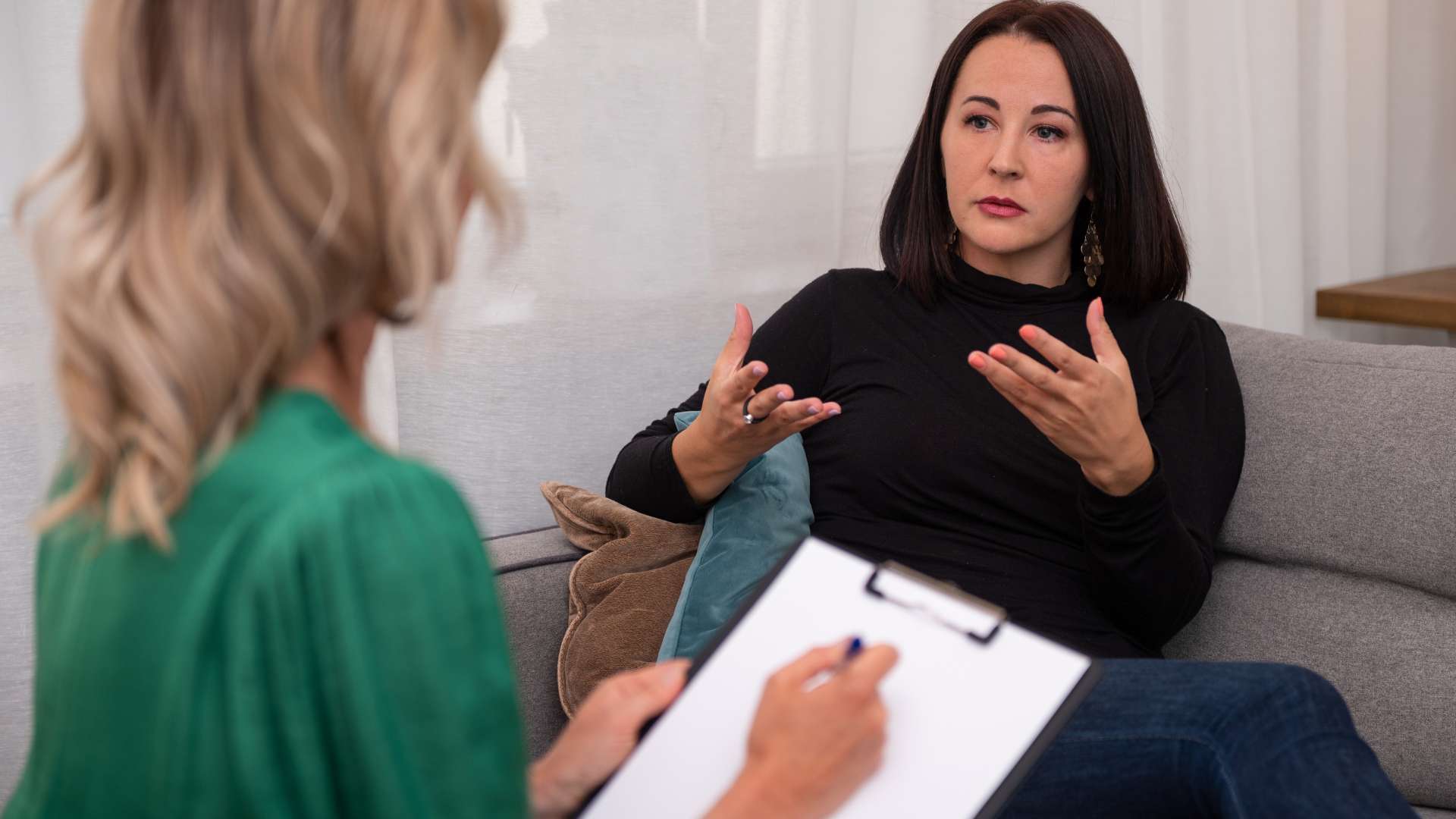
Dialectical Behavior Therapy
Learn emotional regulation, distress tolerance, and mindfulness skills to manage triggers and reduce harmful behaviors.

Anxiety Therapy
Address the root causes of anxiety through evidence-based techniques that promote calm, clarity, and emotional stability.

Depression Therapy
Explore the underlying factors of depression and develop practical tools to rebuild mood, motivation, and hope.

Trauma Therapy
Work through past trauma in a safe, supportive setting using therapies designed to heal emotional wounds and build resilience.

Bipolar Disorder Therapy
Stabilize mood fluctuations and learn personalized tools to manage symptoms and maintain emotional balance.

Motivational Interviewing
Engage in goal-focused conversations that strengthen motivation and commitment to recovery on your own terms.

Relapse Prevention
Develop strategies to recognize warning signs, manage cravings, and maintain long-term sobriety with confidence.

Dual Diagnosis Treatment
Receive integrated care that addresses both mental health conditions and substance use disorders simultaneously for comprehensive healing.


